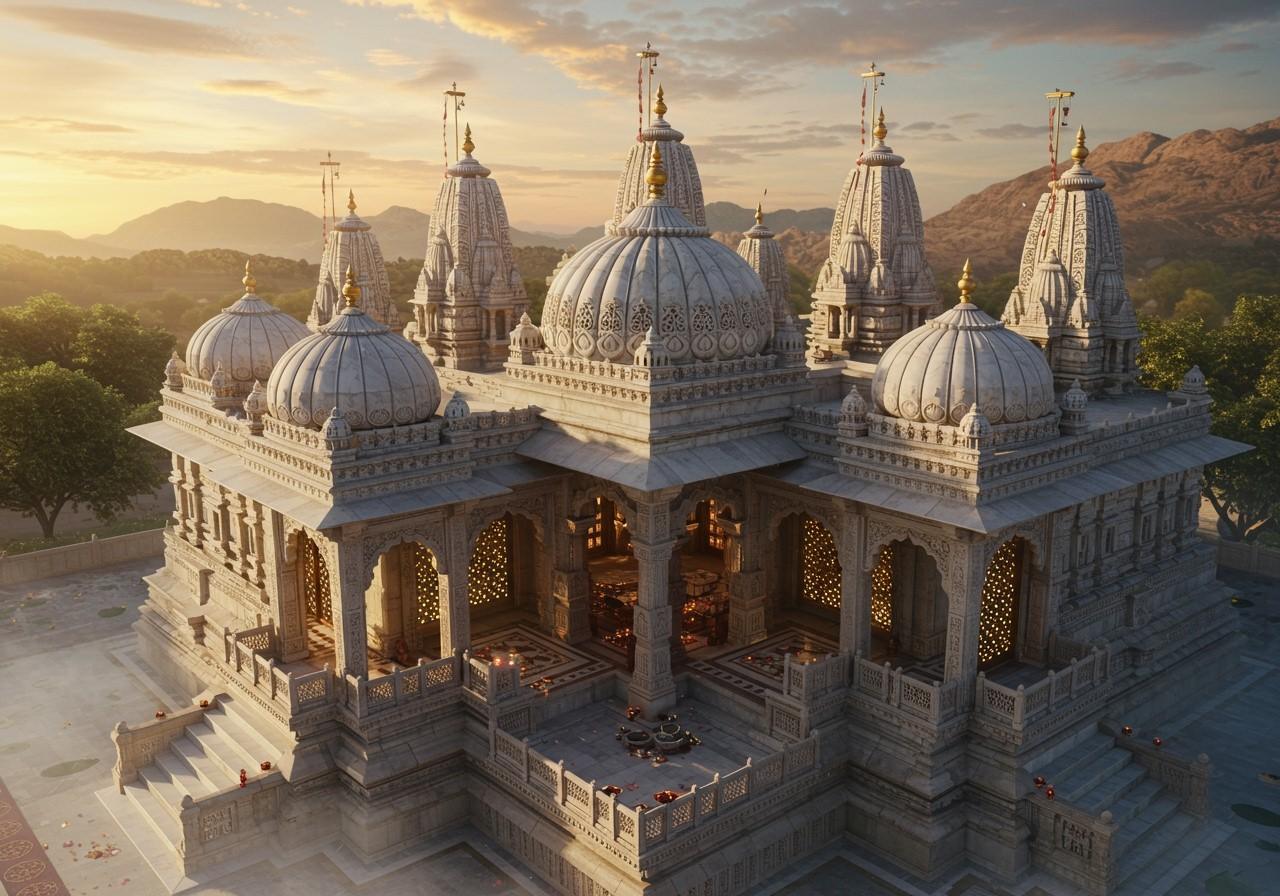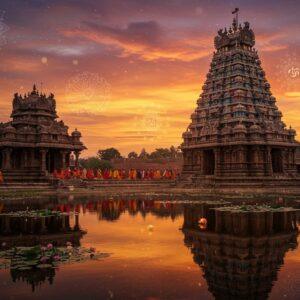
The Dilwara Temples, also known as Delvada Temples, near Mount Abu, Rajasthan, are a testament to the exquisite artistry and spiritual depth of Jain architecture. Nestled within the Aravalli Mountains, these temples are renowned for their intricate marble carvings and serene ambiance, offering a peaceful retreat from the everyday world.
Historical Significance
The Dilwara Temples hold a significant place in Jain history and culture. Constructed between the 11th and 13th centuries CE, these architectural marvels were commissioned by Vimal Shah, a minister of the Solanki king Bhima I, and later enhanced by Vastupala, a minister of the Vaghelas. Each temple is dedicated to a Jain Tirthankara, reflecting deep-rooted traditions and beliefs. The temples’ history intertwines with the Chalukya dynasty and the Solankis, marking an era of architectural brilliance in India.
Architectural Brilliance
The Dilwara Temples are celebrated for their breathtaking marble work. Every inch, from ceilings to pillars, showcases detailed artistry depicting scenes from Jain mythology. The five main temples—Vimal Vasahi, Luna Vasahi, Pittalhar, Parshvanath, and Mahavir Swami—each possess unique architectural styles. The use of pure white marble, transported by elephants from the Arasoori Hills at Ambaji, adds to their ethereal beauty. The precision and dedication of the craftsmen who shaped these masterpieces are a testament to India’s rich architectural heritage.
Spiritual Experience
A visit to the Dilwara Temples offers a deeply immersive spiritual experience. Each Tirthankara holds special significance, and the rituals performed here reflect Jain beliefs. Daily ceremonies conducted by Jain monks maintain the spiritual sanctity of the site. The tranquil surroundings and intricate designs foster a meditative atmosphere, providing visitors with a peaceful escape for reflection and devotion.
Cultural Importance
The Dilwara Temples are not merely structures; they are living centers of Jain pilgrimage and cultural heritage. Festivals like Paryushan and Mahavir Jayanti attract devotees from around the globe, celebrating the vibrancy of Jain culture. Ongoing preservation efforts are crucial to safeguarding these cultural treasures for generations to come.
Visitor Information
Planning a visit to the Dilwara Temples requires some practical considerations. The best time to visit Mount Abu is during the cooler months, typically from November to February, considering weather and festival schedules. Mount Abu is accessible by various modes of transportation, with ample accommodation options available nearby. Visitors are expected to adhere to temple customs, including dress codes and photography restrictions, to maintain a respectful atmosphere. Check the official website or local guides for the most up-to-date information before your visit.
Poojn.in: Supporting Your Spiritual Journey
Poojn.in offers a wide selection of items to enhance your spiritual journey to the Dilwara Temples and other sacred sites:
- Respectful Attire: Find pure cotton prayer clothes and dhoti kurtas that adhere to temple dress codes, along with traditional head coverings and stoles for both men and women. Explore our collection.
- Offerings and Donations: We provide copper and brass puja thalis for offerings, pure silver coins for temple donations, and fragrant dhoop and agarbatti sets made from natural ingredients, perfect for expressing your devotion. Browse our offerings.
- Prayer Essentials: Enhance your prayer experience with our cotton prayer mats for comfortable worship. Discover more.
Visit www.poojn.in to order these items and more. We ensure timely delivery across India, with secure packaging to protect your sacred purchases.
Conclusion
The Dilwara Temples of Mount Abu offer a unique blend of spiritual serenity and artistic splendor. They stand as a testament to the enduring spirit of Jain culture and the timeless beauty of Indian architecture. More than just structures, they are living embodiments of devotion and artistry, offering a profound experience for every visitor.
Explore more about India’s sacred sites and temples:
- Mahadev Temple: History, Nature, and Exploration
- India’s Sacred Sites: Exploring the Spiritual Heart of Famous Temples


